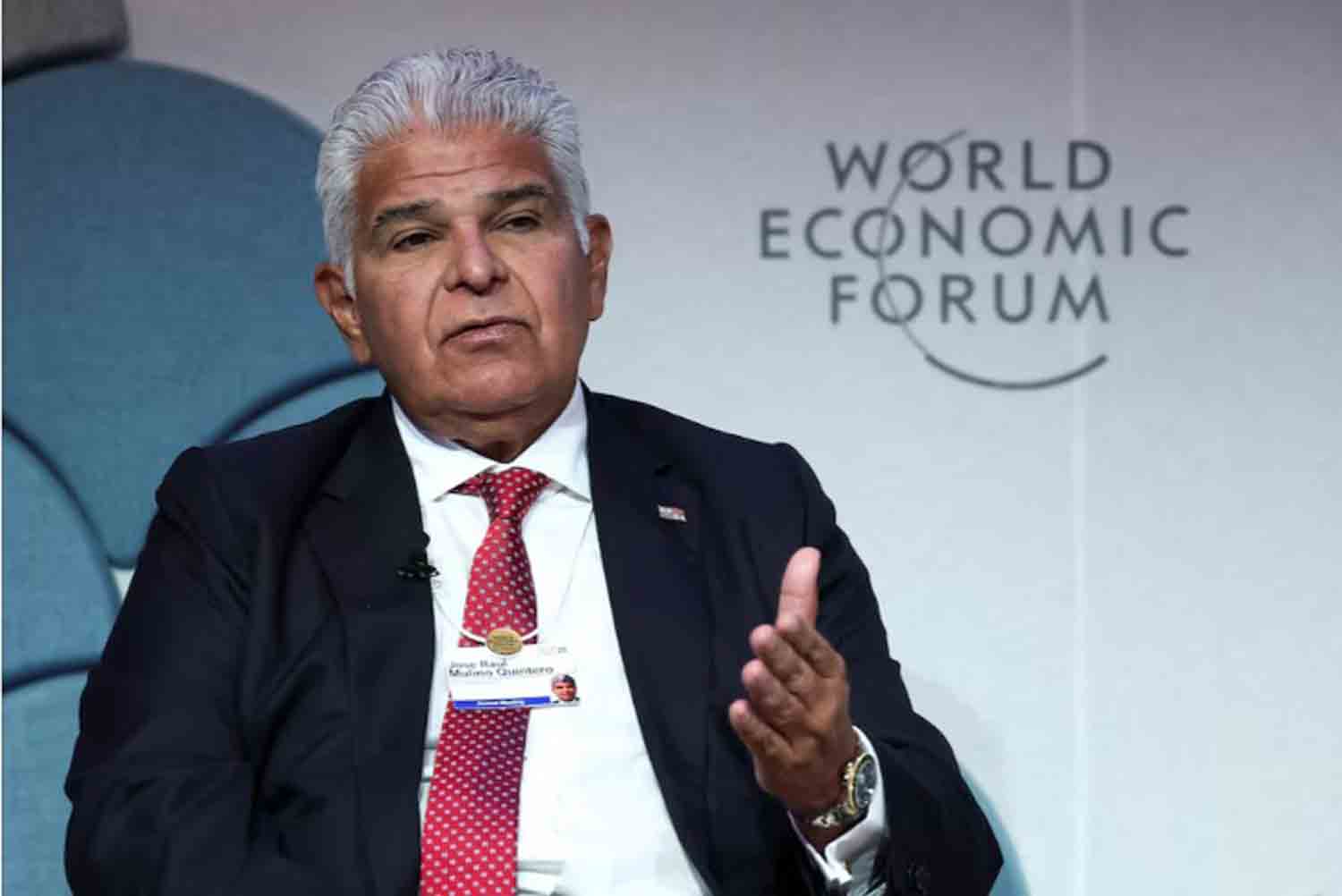Panama’s President Jose Raul Mulino responded with “be serious, be serious” on Wednesday when questioned in Davos about concerns regarding a potential U.S. invasion, following President Donald Trump’s remarks about reclaiming the Panama Canal.
After participating in a panel discussion on Latin America’s “faultlines” at the World Economic Forum’s annual meeting in Switzerland, Mulino chose not to address additional inquiries.
In his inauguration speech on Monday, which referenced the 19th-century expansionist concept of “Manifest Destiny,” Trump reiterated his desire for the United States to regain control of the canal, a vital passage for global shipping. He did not provide specifics on the timeline or method for this reclamation, which involves the territory of an ally, but has previously suggested that military action could be a possibility, prompting criticism from both supporters and adversaries in Latin America.
Trump also reiterated accusations against Panama for allegedly failing to uphold commitments made during the 1999 transfer of the canal and for allegedly allowing its operation to fall into Chinese hands, claims that the Panamanian government has strongly rejected. Mulino stated on X on Monday that Panama has managed the canal effectively for global trade, including for the United States, asserting that it “is and will continue to be Panamanian.”
During the WEF session, Mulino reiterated the government’s stance, asserting that it completely dismissed “everything Mr. Trump stated, firstly due to its inaccuracy and secondly because the Panama Canal is the rightful property of Panama and will remain so.”
He emphasized, “The Panama Canal was neither a concession nor a gift from the United States,” noting that its establishment was the result of a series of treaties dating back to 1903.
While the United States played a significant role in the construction of the canal and managed the surrounding territory for many years, the U.S. and Panama entered into two agreements in 1977 that facilitated the canal’s transition to full Panamanian control. Ultimately, the United States transferred ownership in 1999 following a period of joint administration.
Discover more from Defence Talks | Defense News Hub, Military Updates, Security Insights
Subscribe to get the latest posts sent to your email.





